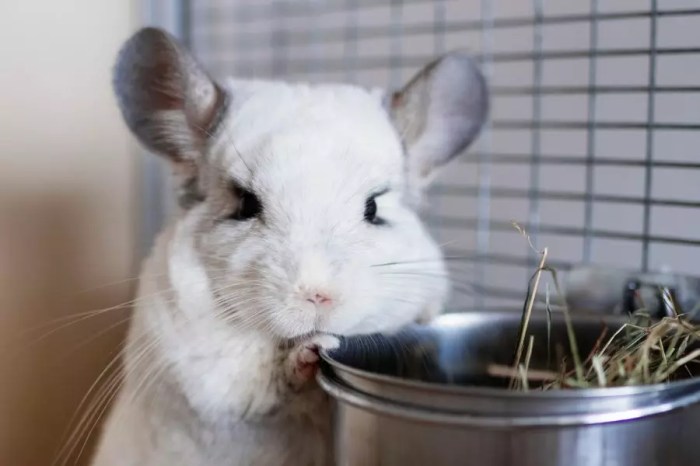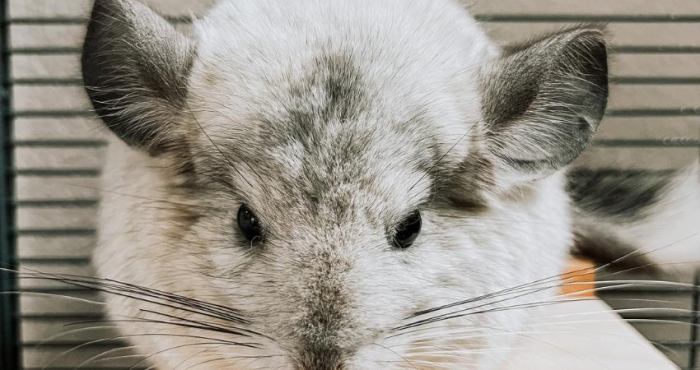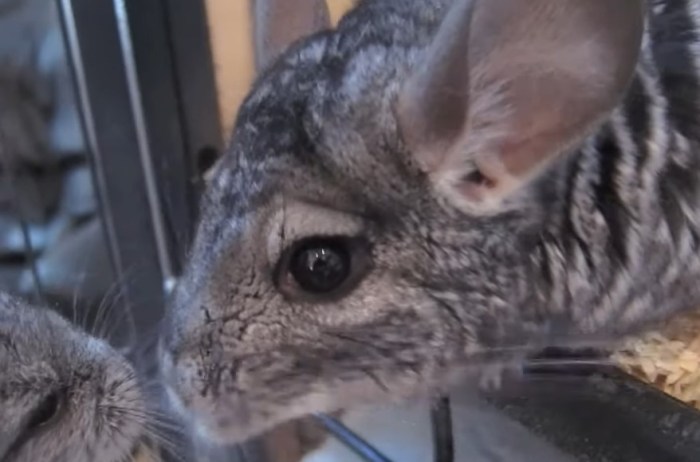As the enigmatic question of why do chinchillas squeak at night takes center stage, this opening passage beckons readers into a world crafted with authority and knowledge. Embark on a journey to unravel the intricate reasons behind this nocturnal symphony, ensuring a reading experience that is both absorbing and distinctly original.
Delving into the depths of chinchilla behavior, this discourse will illuminate the diverse causes and common triggers that prompt these small mammals to emit their distinctive squeaks under the cloak of darkness. From natural instincts to environmental factors and underlying health issues, no stone will be left unturned in our quest for understanding.
Causes of Nocturnal Squeaking

Chinchillas are nocturnal animals, and they often make squeaking noises at night. There are several reasons why chinchillas might squeak at night, including natural instincts, environmental factors, and health issues.
Natural Instincts, Why do chinchillas squeak at night
Chinchillas are social animals, and they often squeak to communicate with each other. In the wild, chinchillas use squeaks to signal danger, attract mates, and keep track of each other in the dark. Even in captivity, chinchillas may squeak at night to stay in contact with their cage mates.
Environmental Factors
Chinchillas are sensitive to changes in their environment. If a chinchilla’s cage is too hot, cold, or humid, it may squeak to express its discomfort. Chinchillas may also squeak if they are feeling bored or lonely.
Health Issues
In some cases, nighttime squeaking may be a sign of a health issue. If a chinchilla is squeaking excessively, it is important to take it to a veterinarian to rule out any underlying medical conditions.
Common Triggers

There are several common triggers that can cause chinchillas to squeak at night. These triggers include:
- Loneliness:Chinchillas are social animals and may squeak if they are feeling lonely or isolated.
- Hunger:Chinchillas are crepuscular, meaning they are most active at dawn and dusk. If a chinchilla is hungry, it may squeak to let you know that it is time for food.
- Thirst:Chinchillas need access to fresh water at all times. If a chinchilla is thirsty, it may squeak to let you know that it needs water.
- Boredom:Chinchillas are intelligent animals and need mental stimulation to stay happy and healthy. If a chinchilla is bored, it may squeak to let you know that it wants to play.
- Discomfort:Chinchillas may squeak if they are feeling uncomfortable. This discomfort could be caused by a number of factors, such as a too-hot or too-cold cage, a dirty cage, or an uncomfortable sleeping spot.
Interpreting the Squeaks

Chinchillas make a variety of different squeaks, and each type of squeak can indicate something different. Some of the most common types of squeaks include:
- High-pitched squeak:This type of squeak is often a sign of distress. A chinchilla may make a high-pitched squeak if it is feeling scared, threatened, or in pain.
- Low-pitched squeak:This type of squeak is often a sign of contentment. A chinchilla may make a low-pitched squeak when it is being petted or cuddled.
- Chirping squeak:This type of squeak is often a sign of playfulness. A chinchilla may make a chirping squeak when it is playing with a toy or another chinchilla.
Managing Nighttime Squeaking
There are several things you can do to address and reduce nighttime squeaking in chinchillas. These strategies include:
Adjusting the Environment
One of the best ways to reduce nighttime squeaking is to adjust the environment to make it more comfortable for your chinchilla. Make sure that your chinchilla’s cage is in a quiet location, away from drafts and direct sunlight. The cage should also be the appropriate size for your chinchilla and should have plenty of space for it to move around and play.
Providing Enrichment
Another way to reduce nighttime squeaking is to provide your chinchilla with plenty of enrichment. This can include toys, chews, and other objects that will keep your chinchilla entertained and mentally stimulated. Providing your chinchilla with a variety of enrichment options will help to prevent it from getting bored and squeaking at night.
Addressing Underlying Health Issues
If you have ruled out environmental factors and boredom as the cause of your chinchilla’s nighttime squeaking, it is important to take it to a veterinarian to rule out any underlying health issues. Some health conditions, such as dental problems or respiratory infections, can cause chinchillas to squeak excessively.
FAQ Resource: Why Do Chinchillas Squeak At Night
What are the most common reasons why chinchillas squeak at night?
The most common reasons include loneliness, hunger, thirst, boredom, and discomfort.
How can I differentiate between different types of chinchilla squeaks?
Chinchillas emit various types of squeaks, each indicating a different emotion or need. Distress calls are typically high-pitched and urgent, while contentment squeaks are softer and more melodious.
What are some effective strategies for reducing nighttime squeaking?
Providing a stimulating environment with plenty of toys and enrichment activities, ensuring their basic needs are met, and addressing any underlying health issues can help reduce nighttime squeaking.